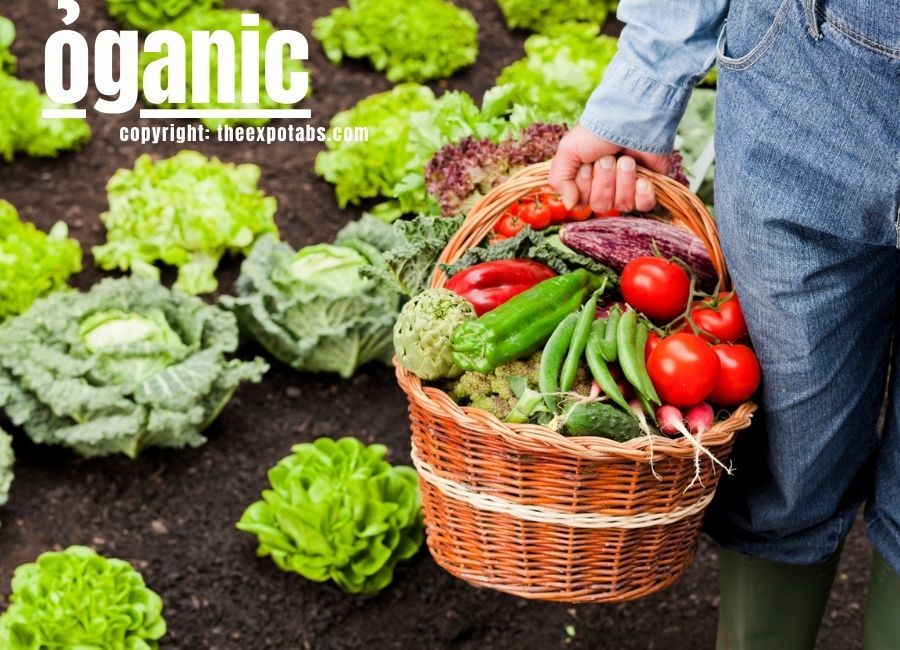In today’s world, where health and lifestyle choices are more diverse, many people are turning to ỏganic options to improve their well-being. “ỏganic” has become a buzzword, often associated with better health, environmental sustainability, and higher-quality products. But what exactly does organic mean, and why is it the best choice for your health and life?
In this article, we will explore the reasons why choosing ỏganic can benefit your health, support a more sustainable environment, and improve your quality of life. We will explore various aspects of the ỏganic lifestyle and understand how it can have a lasting impact on your overall well-being.
What Does ỏganic Mean?
ỏganic refers to how crops and food are cultivated and handled. Organic farming uses natural methods to conserve soil, protect water, and reduce pollution. Farmers practicing organic methods avoid synthetic chemicals like pesticides, fertilizers, GMOs, antibiotics, or hormones. Instead, they use eco-friendly techniques such as rotating crops, composting, and using natural predators to keep the soil healthy and manage pests.
ỏganic food products are certified by organizations that ensure farmers and producers follow strict standards. When you see an organic label, you can be confident that the product has met rigorous requirements and has been produced in a way that minimizes harm to the environment and promotes animal welfare.
The Health Benefits of ỏganic Foods
Free From Harmful Chemicals
One of the biggest reasons people choose ỏganic food is to avoid exposure to harmful chemicals. Conventional farming often relies on synthetic pesticides and herbicides, which can leave residues on fruits, vegetables, and other crops. While these residues are usually within safety limits, long-term exposure to small amounts of chemicals can pose health risks.
Organic farming eliminates synthetic chemicals, ensuring food is free from harmful substances. Studies have shown that ỏganic foods tend to have lower pesticide residues than conventionally grown foods, making them a safer option for your health.
Higher Nutritional Value
Another reason to go ỏganic is the potential for higher nutritional content. Research has found that organic fruits and vegetables may contain more vitamins, minerals, and antioxidants than conventionally grown counterparts. Antioxidants, in particular, play a crucial role in neutralizing harmful free radicals in the body, which can contribute to chronic diseases such as cancer and heart disease.
Research shows that organic foods often contain higher levels of vitamin C, iron, magnesium, and phosphorus. While more research is needed to fully understand the nutritional differences, choosing ỏganic foods may provide more essential nutrients to support overall health.
Better for Gut Health
ỏganic foods are free from chemicals and genetically modified organisms (GMOs). While GMOs’ safety is still widely debated, some research has shown that they can negatively affect gut health by altering the natural balance of bacteria in your digestive system.
Since organic foods are GMO-free, they may help promote better gut health by preserving the natural microbiome of your digestive tract. A healthy gut is essential for proper digestion, nutrient absorption, and immune function, making it a critical component of overall well-being.
Lower Risk of Antibiotic Resistance
In conventional farming, animals are often given antibiotics to prevent illness and promote faster growth. The overuse of antibiotics in agriculture has contributed to the rise of antibiotic-resistant bacteria, which poses a severe public health threat.
When you choose organic meat, dairy, and eggs, you support farming practices that do not rely on routine antibiotics. Organic animals are raised in healthier environments, reducing the need for antibiotics. By consuming organic animal products, you can reduce your exposure to antibiotic-resistant bacteria and help combat this global health issue.
The Environmental Impact of Organic Farming
Organic Farming Supports Biodiversity
One significant benefit of organic farming is its positive effect on nature. Conventional farming practices often rely on monoculture, which involves growing large amounts of a single crop. This can deplete the soil of nutrients and make crops more susceptible to pests and diseases, leading to increased chemical use.
On the other hand, organic farming promotes biodiversity by encouraging crop rotation and planting various crops. This improves soil health and helps support a diverse ecosystem, which can naturally control pests and diseases. Biodiversity is essential for maintaining the balance of our environment and ensuring long-term food security.
Reduces Pollution and Conserves Water
Another critical benefit of organic farming is its ability to reduce pollution. Conventional agriculture often relies on chemical fertilizers and pesticides, which can run off into nearby water sources and contribute to water pollution. These substances can damage water creatures and pollute drinking water sources.
Organic farming uses natural fertilizers like compost and manure, which are less likely to pollute water sources. Additionally, organic practices help conserve water by improving soil structure and increasing the soil’s ability to retain moisture. This reduces the need for irrigation and helps preserve precious water resources, particularly in drought-prone regions.
Helps Combat Climate Change
Climate change is one of the most pressing issues facing our planet today, and agriculture plays a significant role in contributing to greenhouse gas emissions. Conventional farming relies heavily on fossil fuels for machinery, transportation, and the production of synthetic fertilizers, all of which contribute to carbon emissions.
In contrast, organic farming methods can help mitigate climate change by promoting practices that reduce carbon emissions and increase carbon sequestration. Organic farmers use cover cropping, reduced tillage, and composting, which help capture and store carbon in the soil. By choosing organic products, you support a farming system with a lower carbon footprint and help protect the planet for future generations.
Conclusion
Choosing ỏganic isn’t just a trend—it’s a savvy choice for better health, a greener planet, and a brighter future for all. The reasons for going organic are numerous, from avoiding harmful chemicals and improving your nutritional intake to supporting sustainable farming practices and reducing your carbon footprint.
Choosing ỏganic boosts your health and supports a greener planet. Whether it’s food, skincare, or clothing, opting for organic products aligns with a sustainable and conscious way of life.
For daily news visit: https://theexpotabs.com/





